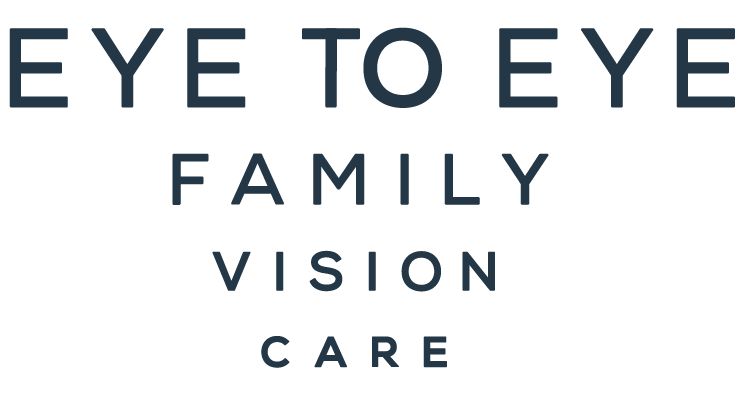How To Prioritize Eye And Vision Health At 50 And Beyond

Age-related vision changes are unavoidable as you age due to anatomical changes to the lens. However, the degree to which vision diminishes, or the risk of other issues affecting eye and vision health as you age, is largely under your control.
Prevent Eye And Vision Health Issues As You Age
They say we end our lives much as we began them in terms of autonomy and ability, and vision is rarely immune to that cycle. Just as babies start life with a blurry gaze, most seniors end their lives the same way without the assistance of corrective lenses or surgery. It’s just a natural result of our eyes as they age.
Part of this is due to anatomical changes. For example, the lens begins to harden as we age, which causes presbyopia (farsightedness). Eventually, most adults between the ages of 40 and 50 need reading glasses, and if they already have corrective lenses, their optometrist opens the discussion about bifocals or progressive lenses to keep things simpler.
A Healthy Lifestyle Supports Eye And Vision Health
In the meantime, your lifestyle choices have a significant effect on the health of your eyes. Body parts and systems are part of a whole, so negative impacts on one typically impact the others. This is why optometrists know quite a bit about a patient’s health based on a basic eye exam.
If you’re headed toward your 50th birthday or recently turned 50, prioritizing vision health preserves your future vision. Here are six things you can start doing right now to prioritize eye and vision health at 50 and beyond.
Diligently observe annual eye exams
We understand why patients often skip a year or two in between eye exams. Life is busy, and the calendar pages turn faster than we want them to. In addition, if you have children, their health and well-being often trump your own (even though they shouldn’t!). And if you don’t notice any vision changes, it’s easy to let the eye exams slip by the wayside.
However, by the time you approach your mid-40s to 50s, annual eye exams are essential. We often catch asymptomatic eye conditions (like glaucoma) or note a change in close- or mid-range vision (computer distance) before our patients do. The sooner we identify potential or existing changes in eye health or vision loss, the more comfortable you’ll be.
Also attend annual wellness exams
We make it a point to remind patients 50 and over to honor their annual wellness exams. Almost every age-related health condition takes its toll on eye health and vision. That includes:
- Being overweight or obese
- Diabetes
- High blood pressure
- Heart disease
- Autoimmune disorders
The more we know about your current health status, the better we can proactively support the well-being of your eyes and vision.
Manage existing health conditions
You’re probably not surprised to know that managing existing health conditions is critical for protecting your eyes and vision. Some of the most common health issues noted above are linked to health- and age-related eye conditions. This include:
- Diabetic retinopathy
- Cataracts
- Ocular hypertension
- Glaucoma
- Macular degeneration - a leading cause of vision loss and legal blindness
The medications you take to manage or treat health conditions may also affect your eye or vision status, so we work with you to provide the best overall care plan for the body, eyes, and vision.
Make healthy lifestyle choices
We’ve long known “you are what you eat,” but there’s so much more to it than that. Your well-being - including vision and eye health - depends on the whole gamut of healthy lifestyle choices. So, if you’re turning 50+, go beyond an eye-friendly diet.
Make sure to:
- Exercise for at least 30 minutes five days a week
- Establish healthy sleep habits
- Practice stress management
- Drink plenty of water and minimize alcohol, caffeine, and sugary drinks (including those with synthetic sugar substitutes)
- Quit any unhealthy habits (smoking, excessive drinking, recreational drug use, late-night unhealthy snacking)
Protect your eye and vision health from UV rays
UV rays damage eye cells the same way they damage skin cells. In addition to putting you at risk for eye cancers and skin cancer on the eyelids, overexposure to UV sun rays increases your risk of vision loss or anatomical changes on the eye's surface. Always wear sunglasses with high-quality UV protection and don a hat outside during daylight hours.
Notice and address symptoms of dry eye
Adults in their 40s and 50s (and older) are more prone to dry eye. There are several reasons for this:
You spend more time on screens. Screens take up more and more of our daily life. In addition to recreational screen time, most of us spend much of our work time on computers or gadgets, which leads to dry and irritated eyes. If your prescription isn’t correct, or you need a special prescription for mid-distances, screens cause chronic eye strain. Take frequent breaks, observe the 20-20-20-20 rule, and have lubricant drops on hand to moisten dry eyes.
You’re approaching or reached menopause. Women produce less mucus and lubricating fluids after menopause, including less eye lubricant. This puts them at a higher risk of developing dry eyes. Chemical/preservative-free artificial tears relieve irritation caused by dry eye. Drink plenty of water, and also speak to your OB/GYN to see if hormone replacement therapy might help.
Increased allergies. As we age, our immune systems wax and wane. So too do our allergic responses. We have so many patients who come in during fall and spring saying, “I’ve never had allergies before…” You may find hay fever or other peoples’ pets cause allergic responses for the first time, making itchy, red, and watery eyes. Even though your eyes may feel watery, you can still experience allergy-related dry eye. If you already suffer from dry eye, allergy season may worsen symptoms.
Speak to your eye doctor if you experience any dry eye symptoms. If hydration and over-the-counter lubricating drops don’t provide relief, we’ll recommend other drops or ointments.
Are You Turning 50 And Overdue For An Eye Exam?
Have you skipped your annual eye exam one too many times? We won’t judge! Schedule an appointment at Eye to Eye Family Vision Care, and we’ll create a personalized plan to prioritize your eye and vision health at 50 and beyond.

